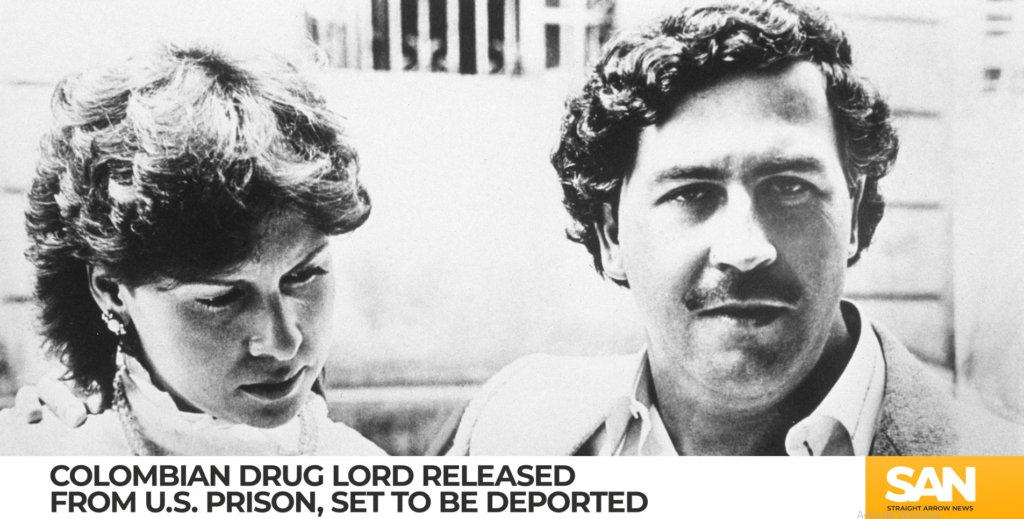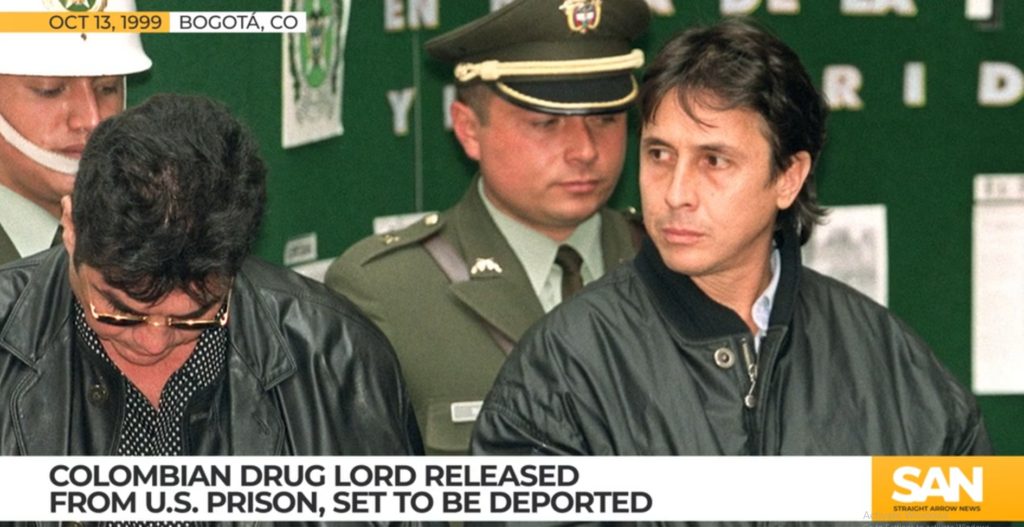After 25 Years in U.S. Prison, the Former Billionaire Returns to a Changed Colombia
A Key Player in Medellin’s Cocaine Empire
Fabio Ochoa Vásquez, once a central figure in Colombia’s infamous Medellin cartel, was released from a U.S. prison on Tuesday. The 67-year-old served 25 years of a 30-year sentence for drug trafficking and conspiracy. Authorities regard Ochoa and his brothers as instrumental in flooding the U.S. with cocaine in the late 1970s and 1980s, a time when their cartel operated with near-impunity.
Ochoa was known for running a Miami-based distribution network, a sharp contrast to cartel leader Pablo Escobar’s hands-on approach. While Escobar came from humble beginnings, Ochoa’s privileged background in ranching and horse breeding underscored his family’s elite status in Medellin.

Arrests, Extradition, and High-Profile Trials
Ochoa’s criminal trajectory includes arrests in 1990 and 1999, with his final extradition to the U.S. in 2001. His 2003 trial gained attention for extraordinary security measures. Jurors were transported in vans with tinted windows, and their identities remained hidden even from legal teams.
While 40 co-defendants cooperated with authorities and received lighter sentences, Ochoa went to trial and received a severe 30-year sentence. His conviction highlighted his defiance, but his wealth and influence persisted, even in prison.
From Billboards to “Narcos”: Ochoa’s Enduring Legacy
Despite his incarceration, Ochoa’s image endured. After his 1999 arrest, he famously put up billboards in Medellin and Bogota proclaiming, “Yesterday I made a mistake. Today I am innocent.”

His portrayal in Netflix’s Narcos brought renewed interest to his story, reminding viewers of his role as a wealthy Medellin elite juxtaposed against Escobar’s grittier persona. These depictions have cemented Ochoa’s place in the annals of the drug trade, even as focus shifted to Mexican cartels.
A Return to Colombia Amid Continued Drug Trade Dominance
Richard Gregorie, a retired prosecutor from Ochoa’s trial, believes the drug lord will not return to poverty. “He won’t be retiring a poor man,” Gregorie stated, hinting that much of the Ochoa family’s wealth remains intact.
Colombia, however, is far from the country Ochoa left decades ago. It remains the world’s largest cocaine producer, with record-high coca cultivation reported in 2023. Recent multinational operations have revealed new Pacific trafficking routes, reflecting the evolving nature of the global drug trade.
Ochoa’s return marks the end of one chapter in the Medellin cartel’s history but leaves questions about his future role in a still-thriving cocaine industry.
Our Visitor






 Users Today : 9
Users Today : 9


